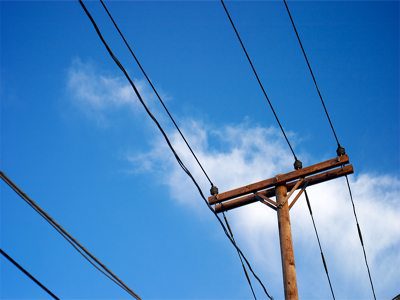As state and federal politicians duke it out over energy policy and investment, the Independent Review into the Future Security of the National Electricity Market, led by Australia’s chief scientist Dr Alan Finkel, remains on track to release its final report mid-year, having gathered more than 360 submissions from industry stakeholders and observers.
After a dramatic week of surprise investment announcements and live-to-air spats, the Review, which was established in October off the back of South Australia’s state-wide blackout in September, remains the nation’s best hope at establishing a bi-partisan blueprint for national power security, as well as achieving a considered re-examination of the rules governing Australia’s energy markets.

And while the submissions to the Review, the majority of which were made public on Friday, reflect the many different views and agendas of a broad range of industry players and stakeholders, there are two strikingly common themes: a) Consistent, bi-partisan policy on both energy and climate policy is crucial to progress; and b) We need to move on from the fossil fuels vs renewables debate.
“Currently there is a disconnect between political party aspirations and state aspirations for the energy markets which is creating confusion resulting in a hiatus in actions to address the problems being faced,” said the submission of the Major Energy Users, whose member companies include some of the biggest manufacturers on the NEM.
“If emissions reduction policies impact the energy markets, it becomes essential that the emissions reductions policies are integrated into energy policy; further, emissions policy needs to reflect the ability of the energy markets to accommodate the emissions policy. Inevitably, this means that energy market policy and emissions policy must be aligned,” it says.
“Stable, long term and predictable policy is critical to attract the investment to address the current issues and undertake the transition,” says the submission from the Australian Aluminium Council.
The Australia Institute uses its submission to express the hope that the Finkel Review can “steer Australia back towards a policy path that looks after the interests of energy consumers and the environment.
“With political stability and support the RET can rapidly increase investment in renewables and aid a transition to a low-emissions energy system,” TAI says. “We hope the Finkel review can provide firm direction towards a renewable future for Australia’s energy systems.”
And the Australian Energy Regulator makes a similar plea: “There is an urgent need for energy and emissions reduction policy to be better integrated,” the AER submission says.
“This needs to happen at the overarching policy level. Ultimately, policy makers will need to balance objectives of emissions reduction and energy security and affordability, but this can only happen effectively if the interrelationships between emissions reduction policy and energy policy are well understood.”

Finkel, himself, has said the nearly 400 submissions, alongside the insights gained from consultations in Australia and internationally, will help inform the development of a “comprehensive blueprint” for government.
“The breadth and depth of these submissions is a mark of the community’s determination to help shape the future of our electricity sector,”he said in comments on Friday. “It is also reflective of the message the Review Panel has received from the outset: a nation like Australia can and must rise to the challenges we face.
Notably, though, he points out that the energy market experts that he and two other panel members met with in Europe and the US were coming from a place that was “well advanced” in managing the policy and technology driven changes transforming their electricity systems.
Some such experts, including Californian EV and battery maker, Tesla, and New York based blockchain microgrid start-up LO3 Energy, were among those who contributed submissions to the Review.
“LO3 Energy’s view is that we are currently only at the very beginning of market and grid architecture changes that will begin to take place in an exponential fashion over the next 3 to 5 years,” the company said in its submission.
“We believe the grid will need to align with transactive energy principles, where consumption, production and the transportation of energy will self-organise according to economic efficiencies.
“The regulatory structure would also need to change, to be aligned with these principles. Market participants would need to be rewarded for of maximising the efficiency of energy production, storage, etc, and therefore should earn returns based on increasing the efficiency, resiliency or adaptive nature of the grid.
“As such, the power markets and utility industry will be faced with having to embrace and eventually adopt new ways of thinking, operating and competing,” LO3 Energy said.







